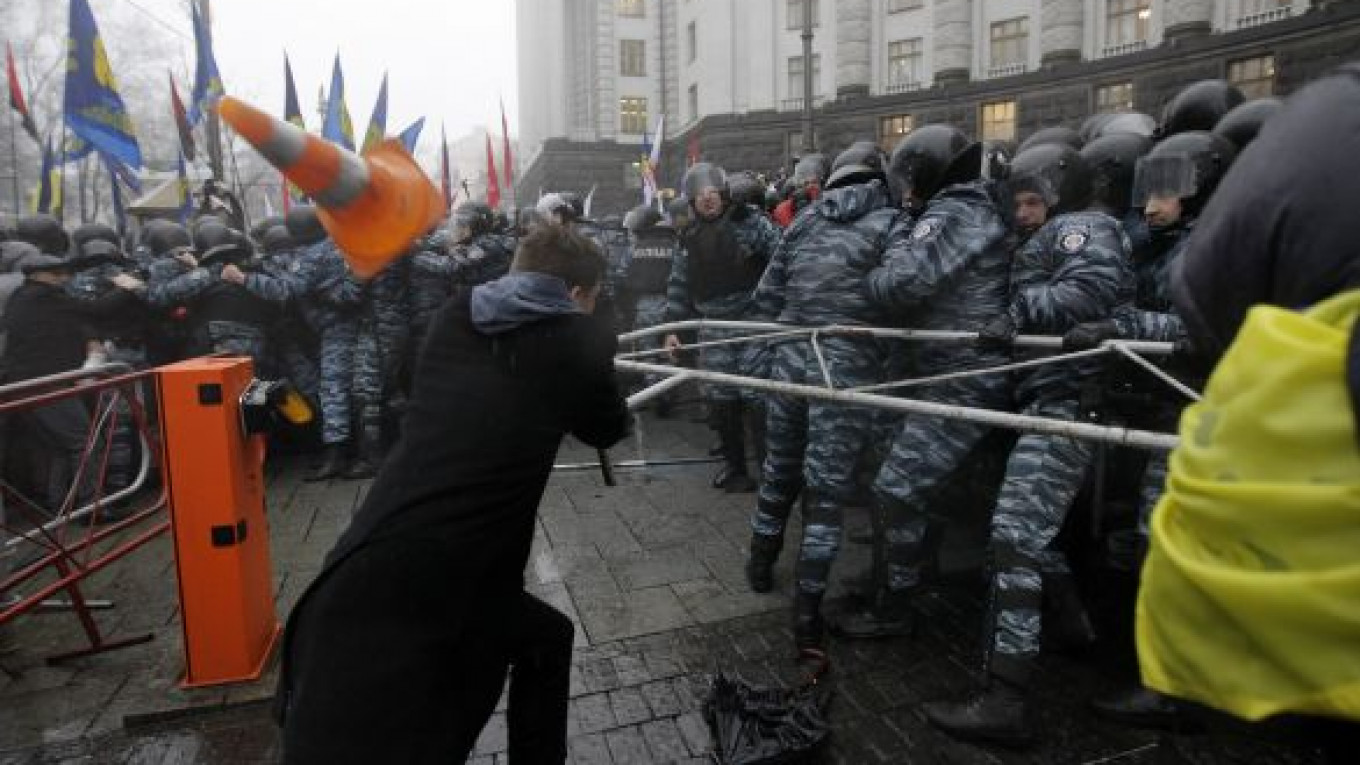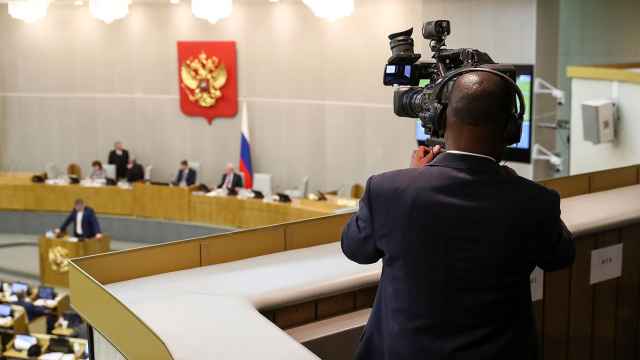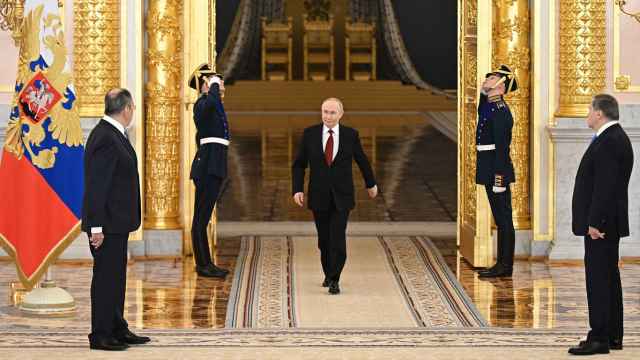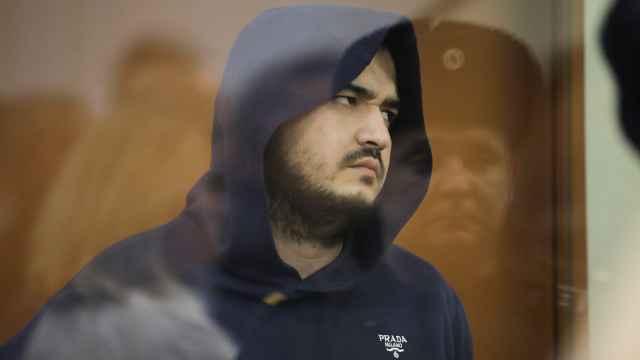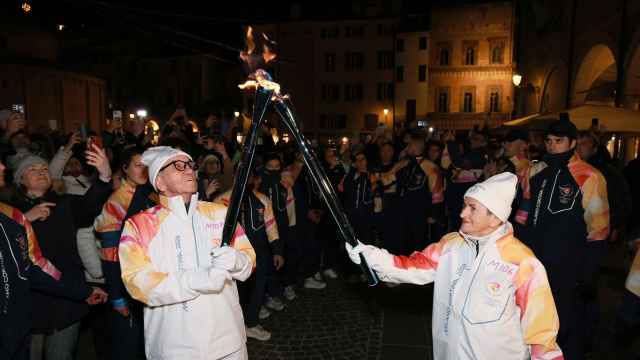Protests against the Ukrainian government's decision to delay an association deal with the European Union last week in favor of closer ties with Russia continued in Kiev on Monday, prompting memories of the 2004 Orange Revolution, while the EU issued a statement condemning Russia's actions in the dispute.
Just as nine years ago, the protests have been driven by a feud between pro-Western and pro-Russian forces over the future of Ukraine, a key geopolitical prize in eastern Europe.
The Kremlin was deeply angered by the outcome of the Orange Revolution, which saw demonstrators protest against the Russian government's favored presidential candidate and current Ukrainian President Viktor Yanukovych, who then lost to pro-Western politician Viktor Yushchenko in a re-run election. President Vladimir Putin has already accused the EU of being willing to sponsor protests to get its way this time around as well.
Russia appears to have the upper hand in this dispute, but the European Union may end up drawing Ukraine into its fold eventually.
"There is no geopolitical victory for Russia" in the suspension of EU talks, said Stanislav Belkovsky, head of the National Strategy Institute. "The vector for European integration is irreversible … and the current protests are cementing that vector."
According to various estimates, 50,000 to 200,000 people took to the streets in Kiev on Sunday, the largest protests since the Orange Revolution, while smaller rallies took place all over Ukraine. The Kiev protesters set up a protest camp on central square Evropeiska Ploshcha, clashed with police and tried to break a police cordon around the Cabinet building.
Most of the people either went home or were dispersed by the police by Monday morning. But some remained, and more protesters poured into central Kiev on Monday, flocked to the Cabinet building again, fought with police and blocked Vulitsya Grushevskogo.
The police used batons and tear gas to disperse the demonstrators, and the authorities initiated a criminal case against protesters who clashed with police on Sunday on charges of hooliganism and resisting arrest. In Lviv — the major stronghold of Ukrainian nationalism and pro-Western sentiment — about 10,000 students demonstrated against the government on Monday, and all classes at universities were canceled, Kommersant reported.
As the standoff with the government escalated, Ukraine’s center-right Svoboda party urged the parliament to pass a vote of no confidence in the Cabinet, while the liberal Batkivshchina party asked the Prosecutor General’s Office to initiate a criminal case against Prime Minister Mykola Azarov and the Cabinet for allegedly exceeding their authority by suspending the deal with the EU.
The EU reacted to the developments in the country by issuing a statement Monday decrying Russia’s actions in relation to Ukraine.
“While being aware of the external pressure that Ukraine is experiencing, we believe that short-term considerations should not override the long-term benefits that this partnership would bring,” said European Council President Herman Van Rompuy and European Commission President Jose Manuel Barroso in the statement. “It is up to Ukraine to freely decide what kind of engagement they seek with the EU.”
“Ukrainian citizens have again shown these last days that they fully understand and embrace the historic nature of the European association,” the EU leaders said, apparently referring to the protests.
“We therefore strongly disapprove of the Russian position and actions in this respect. Stronger relations with the EU do not come at the expense of relations between our Eastern partners and their other neighbors, such as Russia. The Eastern Partnership is conceived as a win-win where we all stand to gain,” they said.
Russia has been accused of pressuring Ukraine to suspend the deal with the EU by introducing cumbersome customs checks on Ukrainian imports and initiating a dispute over gas supplies in recent months. Putin said Monday that Russia would have to put restrictions on Ukrainian imports if the country signed the Association Agreement. During the 2004 Orange Revolution, Russia was also accused of interfering with Ukrainian events in favor of Yanukovych, while the Kremlin said Western money and intelligence agencies were behind the revolution.
Some observers said the current protests could trigger changes similar to the Orange Revolution, when hundreds of thousands of people protested on Maidan Nezalezhnosti in Kiev from November 2004 to January 2005 against perceived election fraud. As a result of the uprising, Yanukovych’s victory in a presidential vote was canceled, and Yushchenko came to power in a repeat election.
Jailed former Prime Minister Yulia Tymoshenko, one of Yanukovych’s chief political foes and a leader of the Orange Revolution, said Sunday that the ongoing protests marked an anniversary of the 2004 events.
“Due to a mystical turn of fate, Yanukovych again made us take to the streets during the same days of the month as nine years ago,” she said in a statement. “This means that we must complete what we failed to do after the 2004 Orange Revolution. We must once and for all expel corrupt clans out of the government.”
But Konstantin Zatulin, head of the CIS Countries Institute and a State Duma deputy, dismissed comparisons with the power transition of 2004.
“Color revolutions happened in countries where the government was weak and unconsolidated,” he said, adding that Yanukovych’s current position was strong, unlike that of then-President Leonid Kuchma in 2004.
The Orange Revolution was partially a result of Kuchma’s intrigues, and he lost his influence as a result of unsuccessful efforts to get his protege Yanukovych elected, Zatulin said. But now Yanukovych is fighting for his own future, not that of a successor.
“He will fight until the end,” Zatulin said.
Belkovsky said Yanukovych had already opted for a pro-European course, however, and was using the current delay in talks on the EU agreement as a bargaining chip to get $10 billion in EU loans that he needed for the 2015 presidential election.
Belkovsky added that Kiev was likely to sign an association deal with the EU within a year — and that the Kremlin can do nothing about it.
Contact the author at [email protected]
A Message from The Moscow Times:
Dear readers,
We are facing unprecedented challenges. Russia's Prosecutor General's Office has designated The Moscow Times as an "undesirable" organization, criminalizing our work and putting our staff at risk of prosecution. This follows our earlier unjust labeling as a "foreign agent."
These actions are direct attempts to silence independent journalism in Russia. The authorities claim our work "discredits the decisions of the Russian leadership." We see things differently: we strive to provide accurate, unbiased reporting on Russia.
We, the journalists of The Moscow Times, refuse to be silenced. But to continue our work, we need your help.
Your support, no matter how small, makes a world of difference. If you can, please support us monthly starting from just $2. It's quick to set up, and every contribution makes a significant impact.
By supporting The Moscow Times, you're defending open, independent journalism in the face of repression. Thank you for standing with us.
Remind me later.


